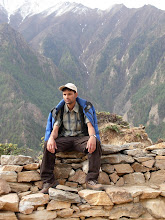Following an increased focus on the role of women in global issues, calls are being made for greater inclusion of women in making and implementing environmental policy and technological changes.
Christina Chan, a senior policy analyst for CARE International, related the situation to the UN news agency IRIN: "Well-designed, top-down approaches to [environmental] adaptation can play a role in reducing vulnerability to climate change; yet they may fail to address the particular needs and concerns of women.”
The IRIN article explores reasons that women are often left out of environmental health approaches, including their almost exclusive responsibility for “daily duties,” such as securing food, cooking and the care of the sick and elderly. These activities fail to capture the attention of men working instead on “big-scale technology."
On Thursday, in testimony to the U.S. Senate Foreign Relations Committee, Peter O'Driscoll of ActionAid USA reiterated that women are among those most vulnerable to negative effects of climate change and their voices should be present in environmental policy discussions. O’Driscoll stated: “Women depend more than men on the fragile ecosystems that are threatened by climate change, yet lack adequate access to and control over the natural resources, technologies, and credit they need to produce food.”
Gender’s role in environmental policy is also the topic of a book, Climate Change and Gender Justice, to be released next month. The book, which is edited by Geraldine Terry, is part of Oxfam’s Working in Gender and Development series. Oxfam also presented Gender, Development, and Climate Change, by Rachel Masika, as part of its Focus on Gender series.
Christina Chan, a senior policy analyst for CARE International, related the situation to the UN news agency IRIN: "Well-designed, top-down approaches to [environmental] adaptation can play a role in reducing vulnerability to climate change; yet they may fail to address the particular needs and concerns of women.”
The IRIN article explores reasons that women are often left out of environmental health approaches, including their almost exclusive responsibility for “daily duties,” such as securing food, cooking and the care of the sick and elderly. These activities fail to capture the attention of men working instead on “big-scale technology."
On Thursday, in testimony to the U.S. Senate Foreign Relations Committee, Peter O'Driscoll of ActionAid USA reiterated that women are among those most vulnerable to negative effects of climate change and their voices should be present in environmental policy discussions. O’Driscoll stated: “Women depend more than men on the fragile ecosystems that are threatened by climate change, yet lack adequate access to and control over the natural resources, technologies, and credit they need to produce food.”
Gender’s role in environmental policy is also the topic of a book, Climate Change and Gender Justice, to be released next month. The book, which is edited by Geraldine Terry, is part of Oxfam’s Working in Gender and Development series. Oxfam also presented Gender, Development, and Climate Change, by Rachel Masika, as part of its Focus on Gender series.



No comments:
Post a Comment